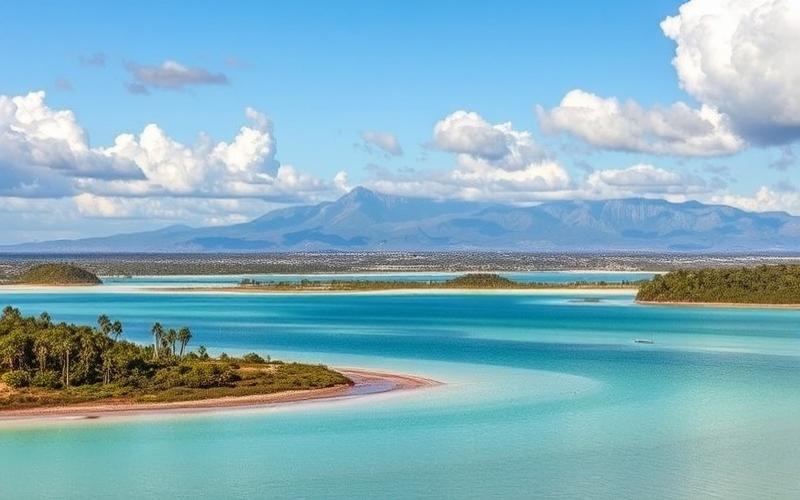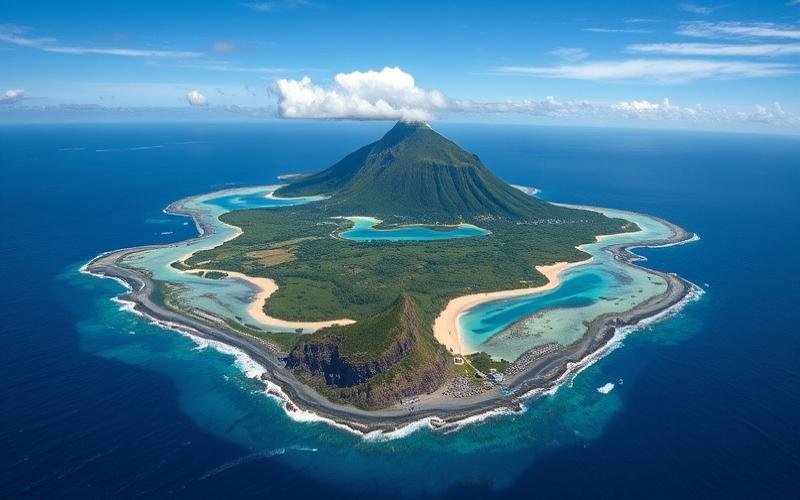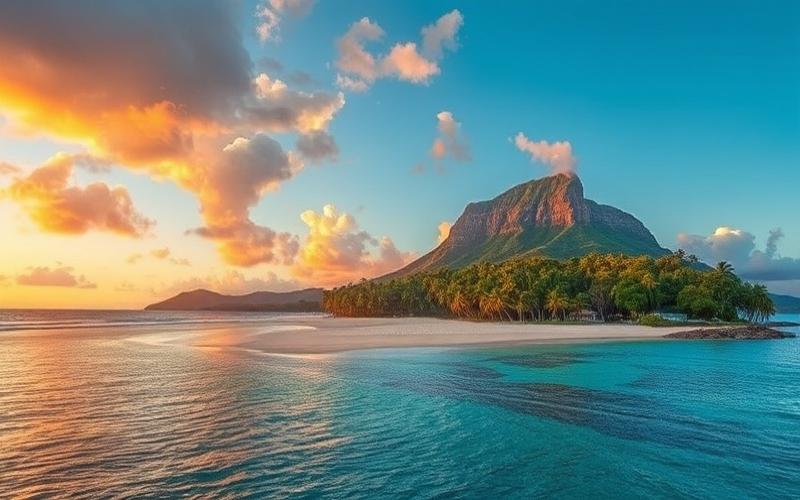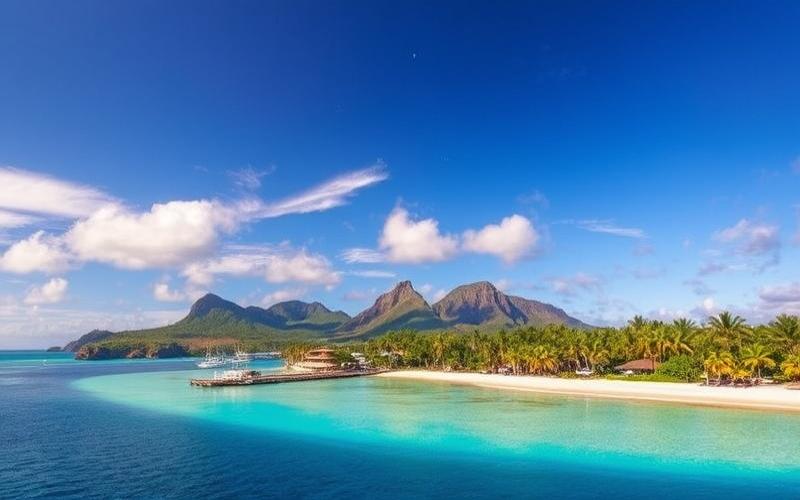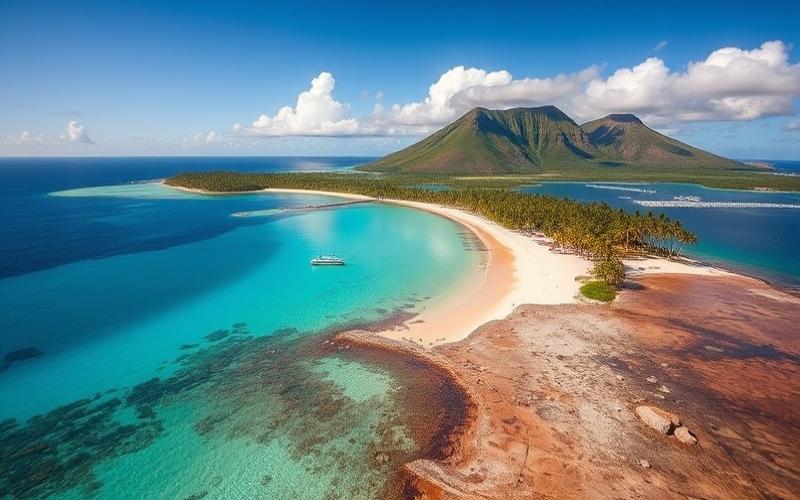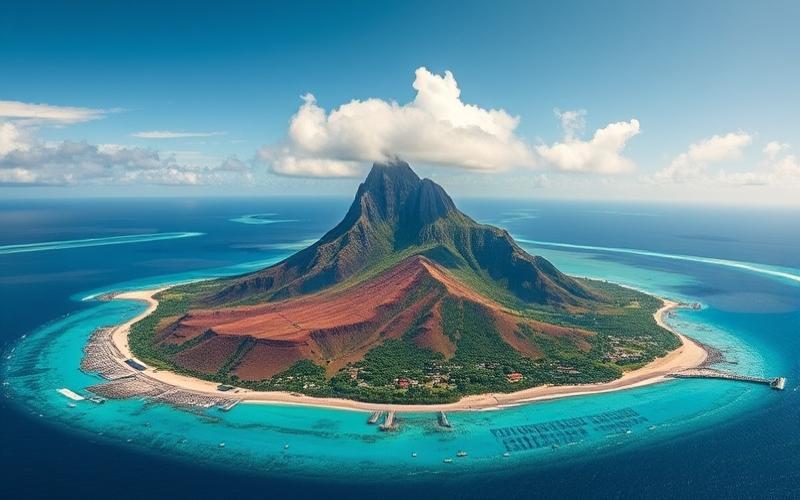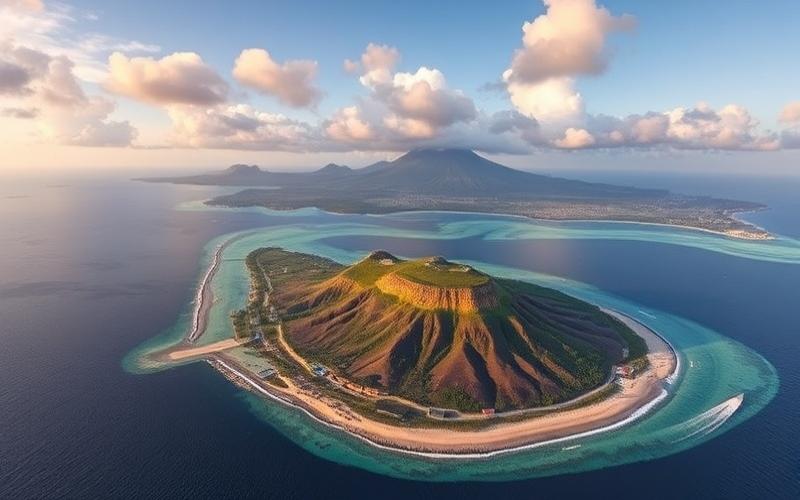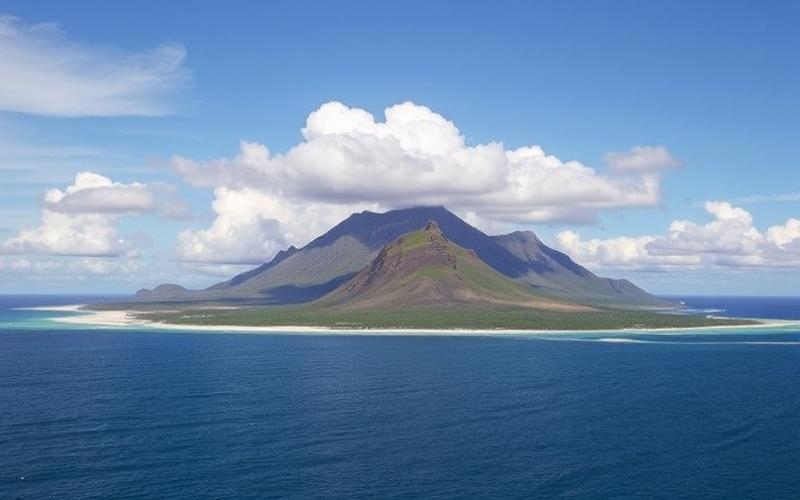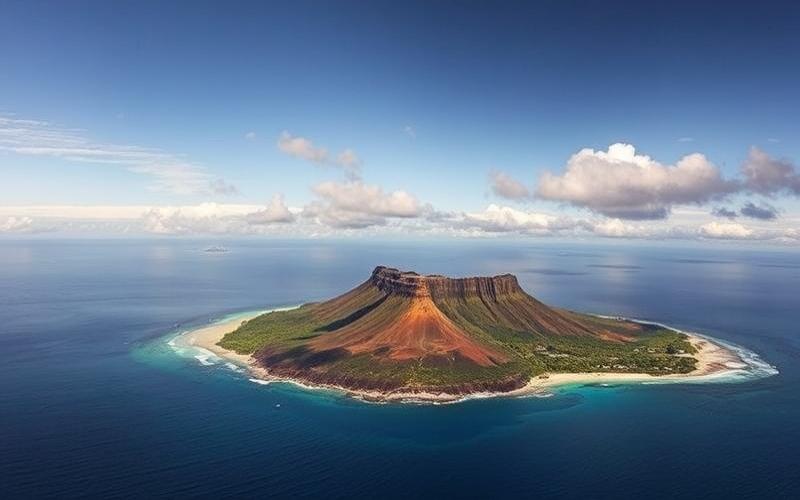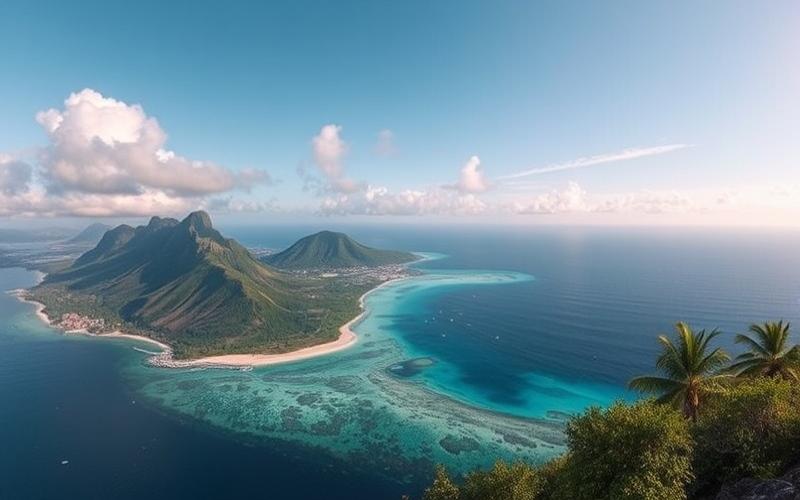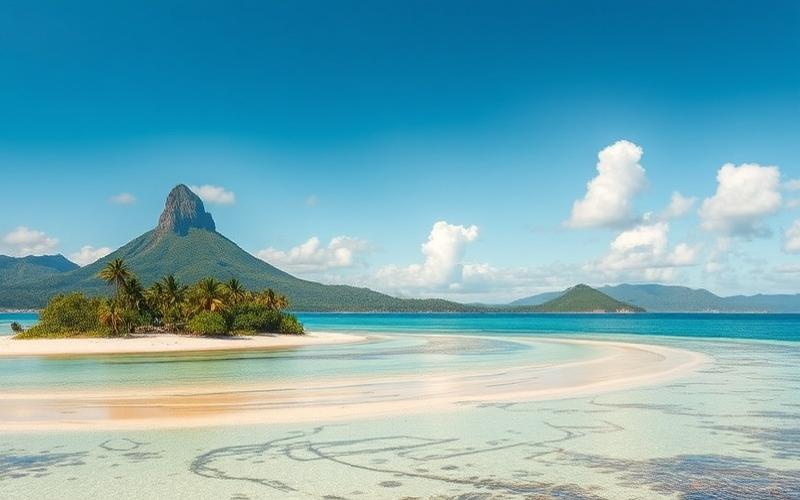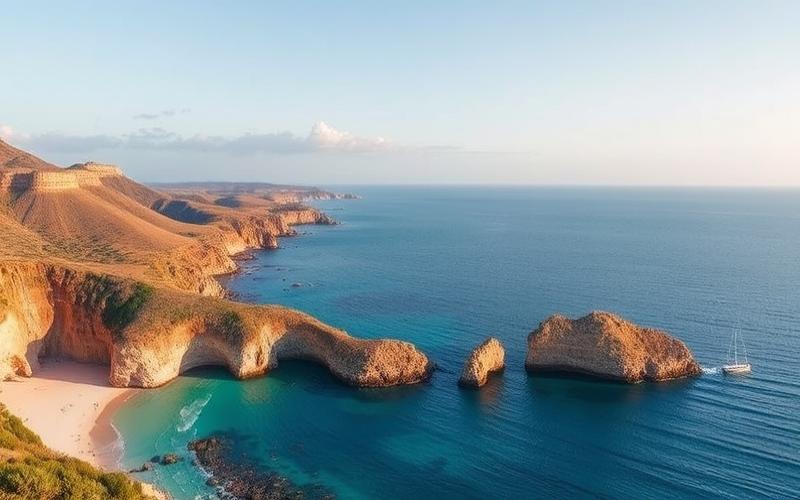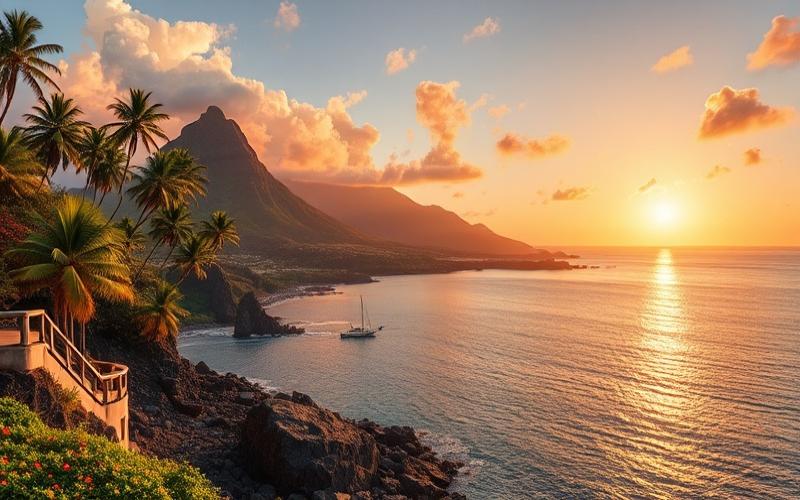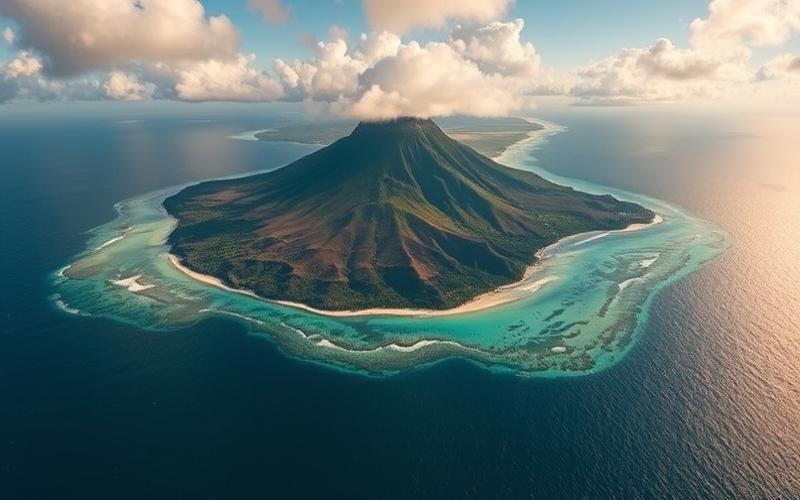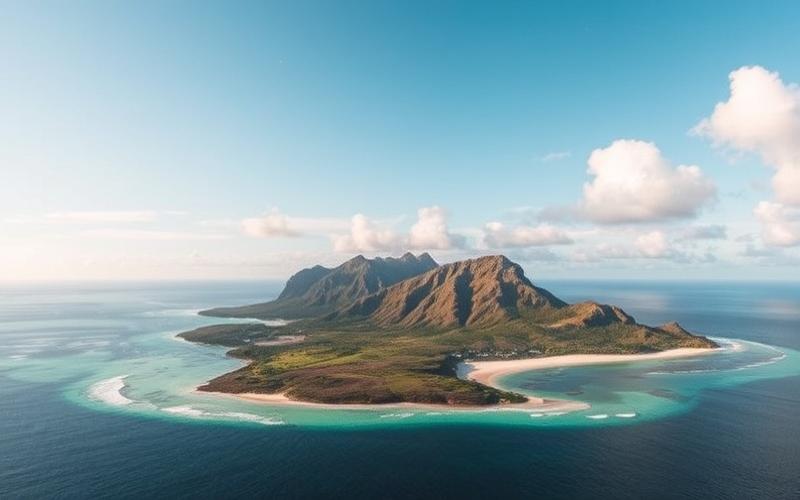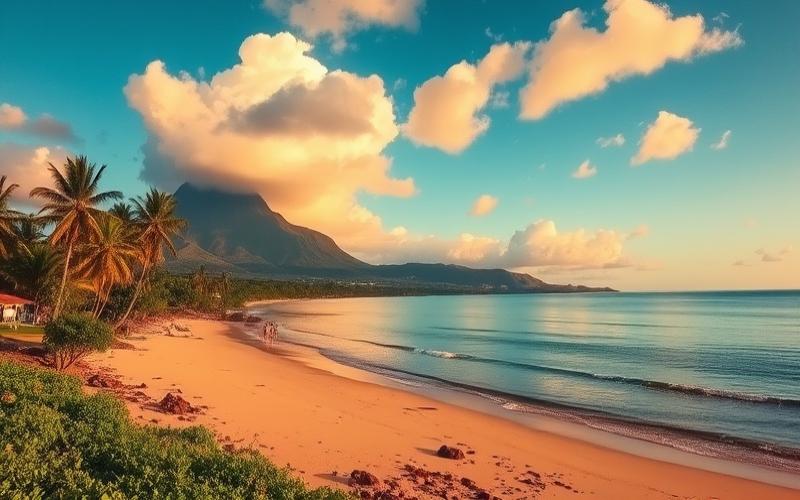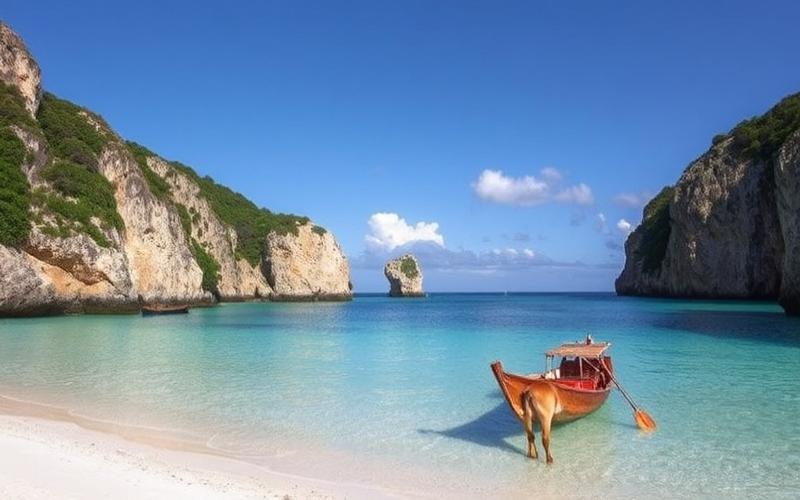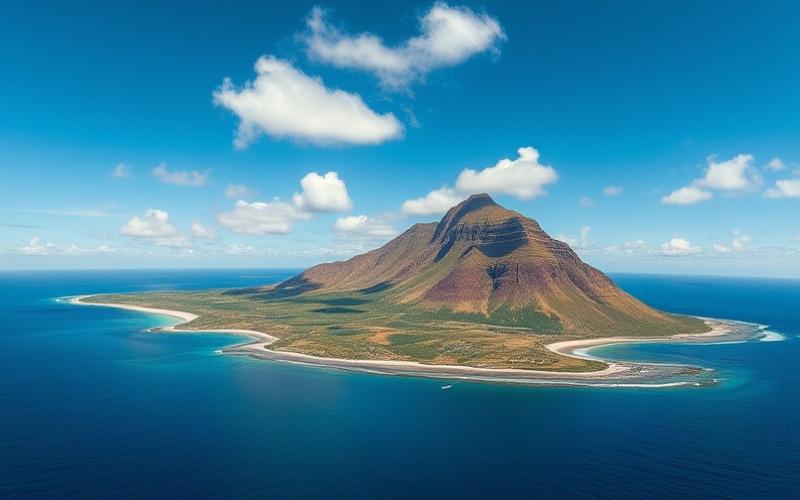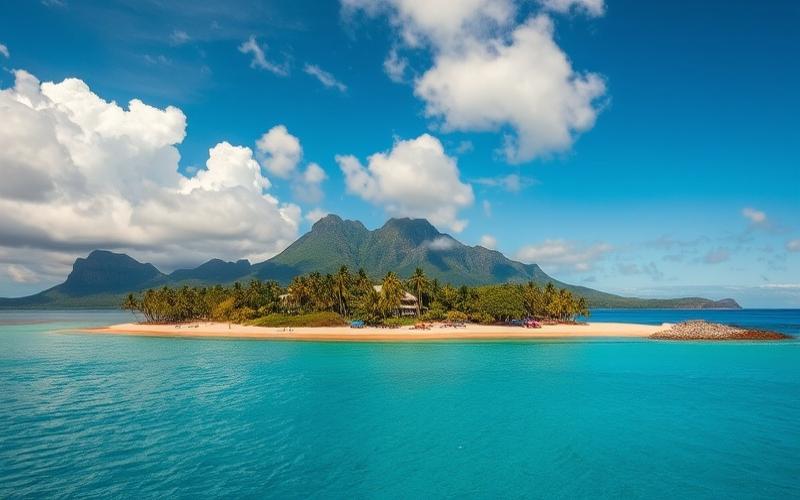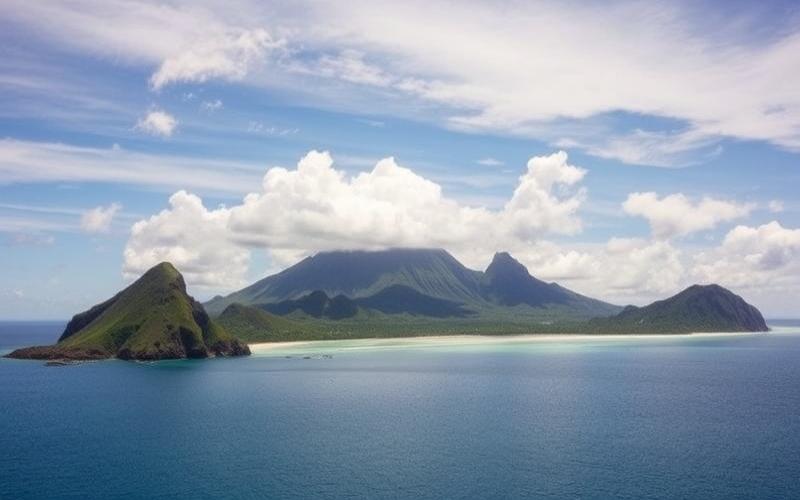
 Published on and written by Cyril Jarnias
Published on and written by Cyril Jarnias
Mauritius, with its white sandy beaches, tropical climate, and idyllic lifestyle, is attracting an increasing number of real estate investors from around the world. However, buying property in this paradise can prove to be a challenging journey for the uninitiated. In this article, we will explore the most common mistakes made by buyers and give you the keys to making a successful investment on the island.
1. The Mirage of Love at First Sight: Don’t Give in to Tropical Euphoria
One of the first mistakes many investors make is falling in love with a property at first glance, without taking the time to think and objectively analyze their purchase. Mauritius, with its breathtaking landscapes and paradise-like atmosphere, can easily make even the most rational buyers lose their heads.
It’s crucial not to be blinded by the beauty of the location and to keep a cool head. Take the time to carefully examine the property, its advantages and disadvantages. Consider factors such as location, the property’s general condition, potential maintenance costs, and the long-term value of the investment.
Remember that even in a tropical paradise, real estate investment remains an important financial decision that requires thorough thinking and careful analysis.
Good to know:
Before committing, visit several properties and compare them objectively. Create a list of important criteria for you and evaluate each property based on these criteria.
2. Neglecting Legal Aspects: A Slippery Slope to Avoid
Another common mistake is underestimating the importance of legal aspects related to real estate purchase in Mauritius. Local laws and regulations can be very different from those in your home country, and ignoring them can lead to complex and costly situations.
It’s essential to understand the legal framework for real estate purchase in Mauritius. This includes land ownership laws, potential restrictions for foreign buyers, property registration procedures, and tax obligations.
For example, did you know that certain types of properties in Mauritius can only be purchased by Mauritian citizens? Or that purchasing certain real estate properties can entitle you to a residence permit? These legal details can significantly impact your investment and your life project in Mauritius.
Don’t make the mistake of neglecting these crucial aspects. Consult a local lawyer specialized in real estate law who can guide you through the subtleties of the Mauritian legal system and ensure your purchase complies with all current regulations.
Good to know:
Make sure you understand the different types of property titles in Mauritius, such as long-term lease or freehold ownership, and their respective implications.
3. Underestimating Hidden Costs: Beware of Financial Surprises
A common mistake among novice investors is not considering all the costs associated with buying and owning property in Mauritius. Beyond the purchase price, numerous fees can accumulate and significantly increase your budget.
It’s crucial to have a comprehensive view of all costs involved in your investment. This includes notary fees, registration taxes, real estate agent fees, but also recurring costs such as property taxes, maintenance costs (which can be high in a tropical climate), insurance, and possibly condominium fees if you’re buying in a residential complex.
Don’t forget the costs related to managing your property if you’re not a permanent resident in Mauritius. If you plan to rent out your property, you’ll also need to consider property management fees and potential vacancy periods.
Create a detailed budget including all these elements to avoid unpleasant surprises. It’s always better to slightly overestimate these costs to have a safety margin.
Good to know:
Set aside an additional budget of approximately 10 to 15% of the purchase price to cover all additional fees and unexpected expenses.
4. Forgetting the Importance of Location: The Ultimate Strategic Choice
Even in a small paradise like Mauritius, location remains a crucial factor for a property’s value and appeal. Neglecting this aspect can lead to disappointments and disappointing investment returns.
Location influences not only your daily quality of life but also your property’s appreciation potential. Think carefully about what you’re looking for: proximity to beaches, access to amenities, tranquility, panoramic views? Each region of the island has its own characteristics and advantages.
For example, the north of the island, with towns like Grand Baie, is known for its lively atmosphere and developed tourist infrastructure. The west, with Flic en Flac, offers magnificent beaches and spectacular sunsets. The center, around Moka, attracts those seeking a cooler climate and more residential atmosphere.
Take the time to explore different regions of the island before making your choice. Research future development projects that could affect your investment’s value. A location that seems isolated today could become highly sought-after in a few years thanks to new developments.
Good to know:
Consider not only the current location but also its future potential. Developing areas can offer good long-term investment opportunities.
5. Rushing the Decision: Patience is Your Best Ally
The excitement of owning a piece of paradise can sometimes push buyers to rush their purchase decision. This is a mistake that can have costly long-term consequences.
Taking the time to think carefully and do thorough research is essential for a successful investment in Mauritius. The Mauritian real estate market, although dynamic, isn’t as frenetic as in some major cities. You generally have time to weigh the pros and cons without fearing you’ll miss an opportunity.
- Visit several properties and compare their advantages and disadvantages
- Perform thorough due diligence on properties that interest you
- Consult local experts (real estate agents, lawyers, tax specialists)
- Understand local real estate market trends
- Think about your long-term goals (primary residence, rental investment, future resale)
Don’t let yourself be pressured by overly insistent real estate agents or supposedly time-limited offers. A good real estate investment is one that perfectly matches your needs and objectives, not one you buy under pressure.
Good to know:
Consider renting a property for a few months before buying. This will allow you to get to know the island better and confirm your preferences regarding location and lifestyle.
6. Unawareness of Climate Realities: Prepare for Nature’s Whims
Mauritius is certainly a tropical paradise, but like any tropical region, it’s subject to particular weather conditions that buyers sometimes tend to underestimate.
It’s crucial to understand the implications of the Mauritian climate on your real estate investment. The island experiences a cyclone season from November to April, with risks of tropical storms and heavy rains. Although major cyclones are rare, they can cause significant damage to unprepared properties.
Additionally, high humidity and salty air can accelerate the deterioration of building materials, requiring more frequent and costly maintenance than elsewhere. Beachfront properties, although very attractive, are particularly exposed to these elements.
When purchasing, pay particular attention to construction quality and materials used. Ensure the property is designed to withstand local weather conditions. Also check drainage systems and flood protection, especially in low-lying areas or near the sea.
Don’t forget to factor these elements into your maintenance budget. A house in Mauritius will likely require more maintenance than an equivalent property in a temperate climate.
Good to know:
Research available insurance against climate risks and include this cost in your overall budget.
7. Neglecting Due Diligence: Dig Deep Before Buying
A common mistake, especially among foreign buyers, is not performing sufficiently thorough due diligence before purchase. Due diligence is a crucial investigation and verification process that can save you from many future inconveniences.
Rigorous due diligence should cover several essential aspects:
- Property title verification: Ensure the seller has the legal right to sell the property and that there are no disputes or charges on the property.
- Technical inspection: Hire an expert to assess the property’s general condition, identify potential structural issues or necessary work.
- Permit verification: Ensure all constructions and modifications were done with necessary authorizations.
- Environmental study: Check potential natural risks (floods, coastal erosion) and nearby development projects that could affect your property.
- Local market analysis: Understand price trends in the area and future appreciation potential.
Don’t skimp on these verifications, even if they seem tedious or costly. They can save you from unpleasant surprises after purchase and ensure your investment is safe and solid.
Good to know:
Hire local professionals (lawyer, real estate expert) to help you in this process. Their knowledge of the market and local practices is invaluable.
Conclusion: The Key to a Successful Investment in Mauritius
Investing in real estate in Mauritius can be an extremely rewarding experience, both financially and personally. However, as we’ve seen, it’s crucial to avoid common pitfalls that can turn your tropical dream into a financial nightmare.
The key to a successful investment lies in a methodical and well-informed approach. Take the time to properly understand the local market, legal and tax aspects, and practical realities of property ownership in Mauritius. Don’t hesitate to call on local professionals to guide you through this process.
Remember that every real estate investment is unique and what works for one person may not work for another. Clearly define your objectives, whether for a primary residence, vacation home, or rental investment, and ensure your purchase perfectly matches them.
With proper preparation and by avoiding the common mistakes we’ve detailed, you’ll be well positioned to fully enjoy your real estate investment in this beautiful corner of paradise that is Mauritius.
Good to know:
Even after purchase, stay informed about developments in the Mauritian real estate market and regulatory changes that could affect your investment.
Disclaimer: The information provided on this website is for informational purposes only and does not constitute financial, legal, or professional advice. We encourage you to consult qualified experts before making any investment, real estate, or expatriation decisions. Although we strive to maintain up-to-date and accurate information, we do not guarantee the completeness, accuracy, or timeliness of the proposed content. As investment and expatriation involve risks, we disclaim any liability for potential losses or damages arising from the use of this site. Your use of this site confirms your acceptance of these terms and your understanding of the associated risks.


